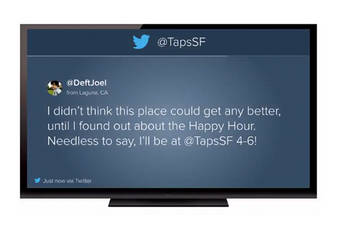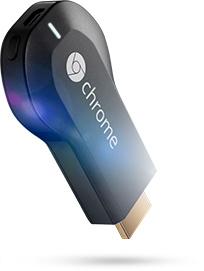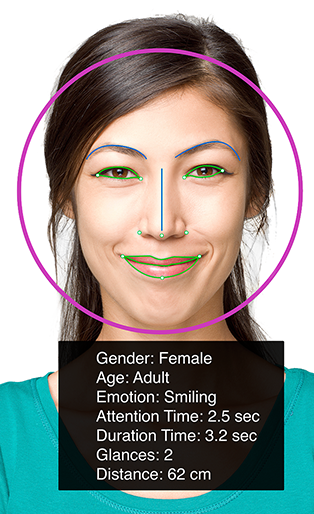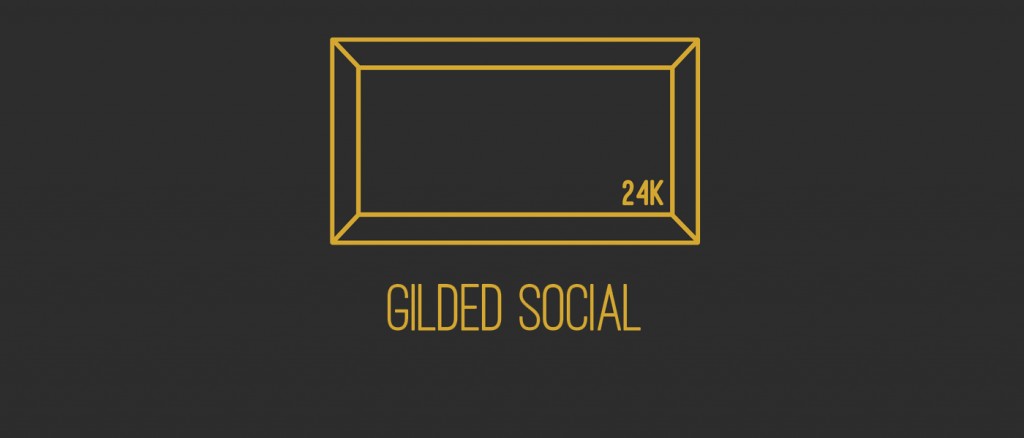An interview with Scott Friedberg, CEO and Founder of Gilded Social
What if the next time you went to get coffee or work out at the gym, you could tweet out something and all of a sudden, it appears on a TV screen in the middle of the place?
Well, you can; and there is a lot more to it than that.
A Lifelong Entrepreneur

(provided photo)
Scott Friedberg is the CEO and Founder of Gilded Social, a company that creates an instant social network display for any business or organization. Born in Fair Lawn, NJ, Friedberg was an entrepreneur even in his grade school days.
“I started a business selling candy at school,” he says, “And even had people working for me. I was always thinking about how to do things on my own.”
Kids will normally charge people ten to twenty bucks to take care of their lawn; but, when Friedberg was in middle school and high school, many of his friends’ dads were professional contractors and landscapers. Friedberg found out what they were charging and “took over the neighborhood,” hiring other kids to work for him, making customer satisfaction his top priority.
“If you give someone a good experience, they will refer you to other people,” he said.
“As simple as that was,” Friedberg said about his childhood business endeavors, “I carried that over into college.”
Friedberg majored in Finance at Syracuse University as an undergrad and pursued his passion for entrepreneurship.
“One day I met with my best friend’s cousin, Ross Lazerowitz” he said, “Sitting in Café Kubal, he (Ross) was a little more tech savvy than I was. I was interested in the buying and selling of textbooks. He wanted to install iPad screens in bathrooms.” Both of them thought it was a good idea. Friedberg had been to Montreal, Canada, where he saw a lot of bathroom advertising.
“Print,” he said, “But we wanted digital.”
Friedberg and Lazerowitz wanted to integrate motion sensors on iPads as a way to charge for impressions when people were using a stall or urinal. They got involved with the iSchool at SU and the Student Sandbox to get the idea off the ground.
“While my friend Ross was sourcing hardware, I was trying to sell it,” he says, “I was talking to restaurant owners, but it didn’t really catch on. So we decided to go into stores instead of just bathrooms.”

Displays installed are typically a 40-50 inch screen, branded to each venue. The feed is customizable, but usually a company’s Twitter feed, Foursquare, or Instagram are added, along with their choice of hashtags.
“Social media was going to be a side thing,” said Friedberg, “But we realized it was huge. We had people telling us, ‘Since you installed the screen we’ve had a 500% increase in Twitter followings.’”
At first Friedberg tried to build his own product, and spent six months talking to developers, designers, and advisors.
“I don’t have a tech background,” he said.
Friedberg joined the Kairos Society, a group that works with young entrepreneurs, and got an email from a member of the group who connected him with a girl in California who was trying to do the same thing. After a 30 minute conversation, Friedberg partnered with her on the project.
In just the past few months, Gilded Social has grown to over a dozen locations including Café Kubal, Urban Life Crossfit, J Michael Shoes, Fleet Feet, and more.
“The community is great here,” commented Friedberg, “Everyone is willing to help.”
Friedberg’s business is capable of working anywhere and though he’s been working mainly with restaurants and retail, the scalability to other types and sizes of venues is in the works.
“Now, it’s about making the right moves and contacts,” he says, “Coming up with a strategy to grow quicker.”
Friedberg credits a good deal of success to the Whitman School and IDEAS Syracuse, being part of their Couri Hatchery incubator and around other entrepreneurs. He’s also landed some awards including “Entrepreneur of the Week” for Launch NY, the Dick Clark Leadership Fellows Scholarship, the IDEA Award for Products and Services/Big Ideas and 3rd Place at the Panasci Business Plan Competition. and was an entrepreneurship engagement Scholar at SU.
The Tech Side – How it Works

Friedberg’s “magic box” is a small device – 2 inches wide by 3 inches long. It’s an Android player, basically, that creates customized digital signage. It plugs into a TV just like Apple TV or Chromecast devices.
Customized feeds can include social media networks like Facebook, Twitter and Foursquare; also a newsfeed or the current weather. Designated hashtags can also be “fed” into the device. Yelp reviews over four stars can also show up. Foursquare shows up with an little attitude, i.e. “Scott snuck into Café Kubal.”
“Everything is fullscreen on display,” noted Friedberg.
Graphics can also be uploaded and are as simple as adding pictures to Facebook – to spotlight an employee of the month, for example. The platform supports all forms of graphics and full HD video.
Vendors have full mobile app control over the device, and it can be set up in ten minutes.
“Some businesses don’t ever login and just play the social media feed,” said Friedberg, “Others add new photos and hashtags all the time depending on the season.”
Right now, Gilded Social offers two business models: the first is the free subscription where part of the screen includes ads from other non-competing businesses; the second, a $99 per month charge to be ad free. Gilded Social also sells clients display screens if needed.
“The free version is more attractive to small to mid-sized businesses, usually,” said Friedberg, “They don’t mind supporting other non-competing local businesses. On the other hand, a franchiser or a chain will not want other advertisers.”
Scaling for the Future
Social engagement for any business is likely to lead to an increase in profit; savvy business owners in Syracuse’s college town already know that.
“I’m trying to develop these around college campuses,” said Friedberg, “Social media and college kids is a match made in heaven. I’m looking into a campus rep type structure,” said Friedberg.
More than just display screens and twitter feeds, Friedberg is looking to create a new advertising network via Gilded Social.
“It’s digital verses the billboard,” he said, “Tracking and targeting the right eyeballs is where it’s at, though technology is not quite there yet.”
Similar to the Google AdWords model, advertisers could someday buy ads shown only to 18-24 year olds, or only in bars, gyms, and cafes.
“As technology gets there, we have things like Google Glass and face recognition software,” said Friedberg, “In the future we will actually be able to track physical views and also positive reactions.”

Friedberg mentioned a company called Immersive Labs, now testing a product that uses a little camera to track human emotions.
“The consumer isn’t ready for this,” he said.
The camera can deduce age, gender, whether you look at the ad, and also whether the look was positive or negative.
“This just gives you an idea where advertising is going,” underlined Friedberg.
“We’ve all got cell phones, and tablets” he said, “who would have thought, in 1995, we would have Twitter and Snapchat?”
“My big vision,” he said, “is to replicate that with TV screens – in every bar, gym, place – has this TV screen (connected) to the internet. This would be a huge network to develop all kinds of apps: a weather app, a restaurant wait list app, trivia.”
We are not far from the Minority Report day when the ad “knows” you bought those pants last time, “Why not try this shirt?”
“Just like the cell phone, I don’t know what will come next but there are people who do,” said Friedberg.
For now, Friedberg is creating an amazing platform that is multiplying business and the social experience, connecting consumers.
When speaking about the awe-filled moment someone sees their tweet on the screen, Friedberg said, “It’s like magic; it’s like your moment of fame, an experience everyone wants to have.”
To find out more about Gilded Social, visit their website at www.gildedsocial.com. You can also follow Scott on Twitter at @Spfriedberg.




